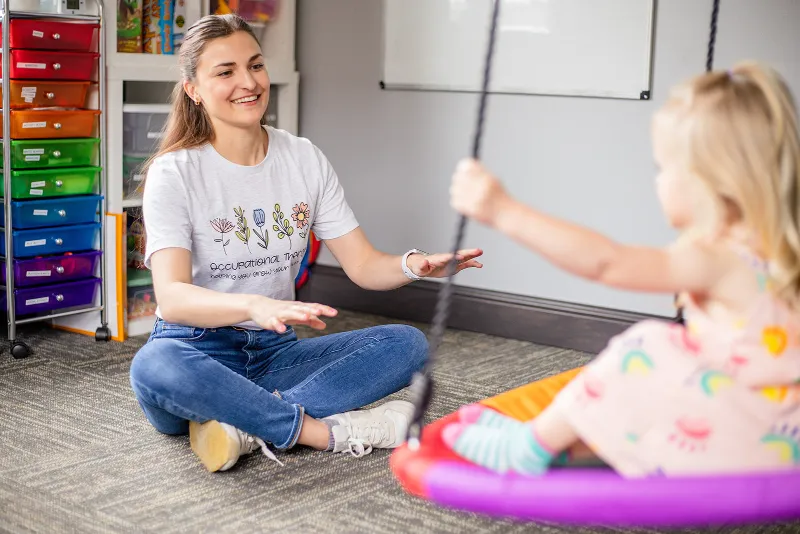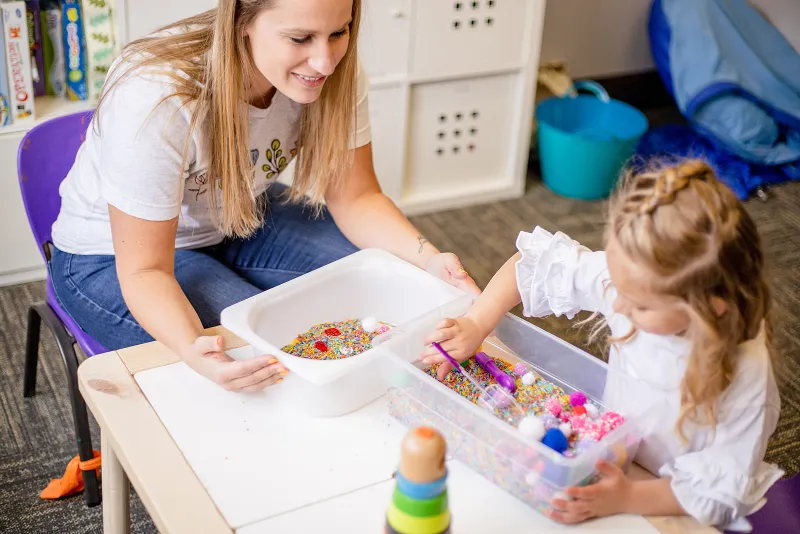Sensory Processing
When a child has substantial sensory processing deficits, this affects one or more areas of daily life. It often impacts academic performance, makes social interactions more difficult, and cause distress or discomfort during everyday activities. It commonly affects often-overlooked sensory-based motor skills, postural functions, and praxis (motor planning). We work to decrease abnormal responses to sensory input; increase sensory-based motor skills; educate parents so they can be interpreters and guides in their child’s sensory life; and improve a child’s coping skills so they can make more adaptive, appropriate responses when they encounter sensory input that is distressing. Through therapeutic activities, children develop functional skills and self-confidence.














